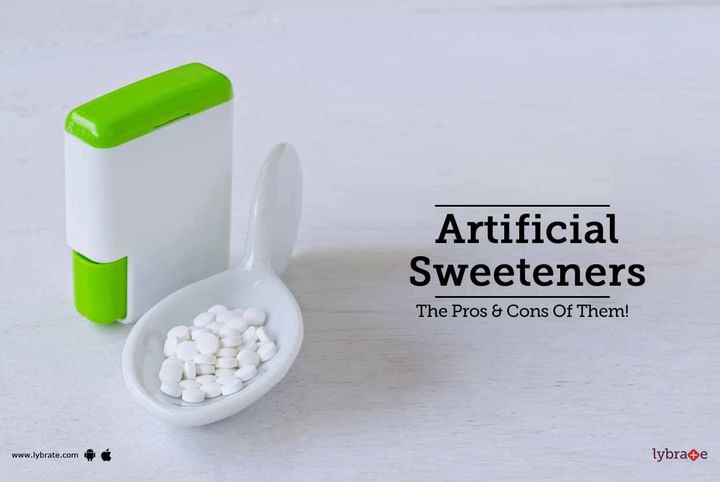Artificial Sweeteners - The Pros & Cons Of Them!
If you like your food sweet, but worry about calories at the same time, chances are you are leaning towards artificial sweeteners to solve your dilemma. The market is flooded with artificial sweeteners, so how do you choose one? And what are their pros and cons?
Besides weight control, artificial sweeteners are also used by people suffering from diabetes. But there is a debate as to how safe artificial sweeteners are, for normal people and diabetics alike.
You get multiple choices from aspartame to sucralose, present in stores. However, it is better to be educated about their benefits and disadvantages.
The pros and cons of most popular sweeteners are as follows:
1. Saccharin: This sugar substitute has been in the market for the longest.
Pros:
a) It has zero calories
b) It does not elevate the levels of blood sugar
c) 200-700 times sweeter than normal sugar
Cons:
a) It is a possible carcinogen (substances that cause cancer)
b) There is also the danger of saccharin acting as an allergen (substance that cause allergy)
2. Aspartame: It is the most commonly used sugar substitute. Almost all the food items that boast of being sugar-free have aspartame in them.
Pros:
a) 160-220 times sweeter than common sugar
b) A small amount goes a long way, so calorie intake is lesser
Cons:
a) Headaches, depression and cancer have been linked to aspartame use
b) Increased hunger
3. Sucralose: This sugar substitute is derived from sugar itself. It is gradually becoming the most popularly used sweetener as it is found in almost all cooked or baked foods.
Pros:
a) It is heat resistant, so it is used liberally in cooking and baking
b) It has very few calories
Cons:
a) Weight gain is still possible
b) It has chlorine in it, which is a carcinogen
4. Neotame: This is a new invention and is chemically related to aspartame.
Pros:
a) 7000 -13000 times sweeter than common sugar with zero calories
b) Apparently, it is safe for consumption for teens, children and even for women who are pregnant or breastfeeding
Cons:
a) There isn't enough research done on Neotame, therefore very little is known about it
b) Since its chemical composition is closer to aspartame, there is much controversy about "neotame" affecting people the same way as aspartame



+1.svg)
